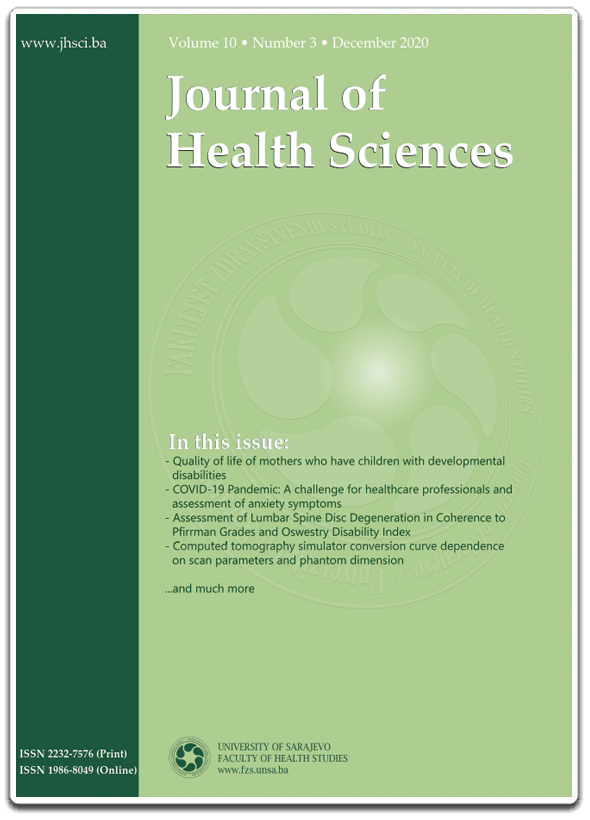Analysis of Delphinidin and Luteolin Genotoxicity in Human Lymphocyte Culture
DOI:
https://doi.org/10.17532/jhsci.2015.248Keywords:
Chromosome aberrations, cell proliferation, bioflavonoides.Abstract
Introduction: Bioflavonoids delphinidin (2-(3,4,5-Trihydroxyphenyl)chromenylium-3,5,7-triol) and luteolin (2-(3,4-Dihydroxyphenyl)-5,7-dihydroxy-4-chromenone) have been recognized as promising antioxidants and anticancer substances. Due to their extensive use, the goal of the research was to determine whether they have any genotoxic potential in vitro.
Methods: Analysis of genotoxic potential was performed applying chromosome aberrations test in human lymphocyte culture, as this kind of research was not conducted abundantly for these two bioflavonoids. Delphinidin and luteolin were dissolved in DMSO and added to cultures in final concentrations of 25, 50 and 100 μM.
Results: In human lymphocytes cultures Delphinidin induced PCDs in all treatments, potentially affecting the cell cycle and topoisomerase II activity. In concentration of 50 μM luteolin showed strong genotoxic effects and caused significant reduction of cell proliferation.
Conclusion: Luteolin exhibited certain genotoxic and cytostatic potential. Delphinidin was not considered genotoxic, however its impact on mitosis, especially topoisomerase II activity, was revealed.










